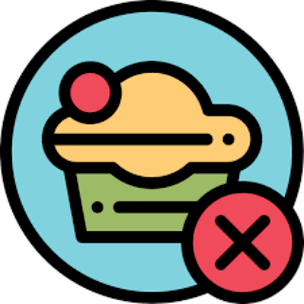The Japanese diet has become very popular among people who want to lose weight. Most importantly, they are attracted by the short duration (only 14 days) and the availability of the necessary products.
How the Japanese diet originated
Many people think that the Japanese diet is related to the daily diet of the inhabitants of this country, but this is not the case. Most likely, the diet got its name due to strict adherence to diet and high efficiency. The Japanese are very responsible and responsible people, they pay attention to everything and follow the rules, so they get high results.
Another version of the appearance of the name is where the diet is prepared. It is believed that it was prepared at the Yaeks clinic in Japan. Naomi Moriyama, a nutritionist who has developed a weight loss system, is convinced that it can be adapted to the usual diet of Europeans, whose effects and tastes are significantly different from Japanese.
Benefits of the Japanese diet

The Japanese diet will help cleanse the body of toxins, as well as normalize metabolism in just 14 days.
Large amounts of fruit will saturate the body with fiber and help improve bowel function, and a sufficient amount of nutrients will maintain a feeling of satiety and high performance.
Features and principles
Diet, unlike many others, does not mean a fractional diet. Designed for three meals without additional snacks. You can't change your diet days in places and try to "improve" your diet in any way, otherwise it is no longer a Japanese diet and you will have to start all over again.
You should drink a glass of cool water every morning, it will help speed up your metabolism and get rid of hunger. At other times, it is recommended to drink as much pure mineral (non-carbonated) or boiled water as possible.
Shopping list

To successfully continue your diet, you need to take the following foods:
- 1 packet of green tea of any kind you want. Make sure there is no flavor in the composition.
- 1 packet of good coffee beans (or ground).
- 2 cassettes (20 pieces) Chicken eggs.
- 1 kg. chicken fillet (breast).
- 1 kg. beef pulp (it is better to take lean).
- 2 kg. sea fish fillets.
- 0, 5 l. extra virgin olive oil.
- 2 medium white cabbage.
- 1 kg. pumpkin or eggplant.
- 2-3 kg. fresh carrots.
- 1 kg. any fruit except bananas and grapes.
- 1 l. tomato juice.
- 1 l. kefir.
- 2 lemons.
All provisions should be fresh and the best you can find.
What should not be in the diet

Abstain from sugar and salt in the Japanese diet. The same rule applies to all types of baked goods, confectionery and alcoholic beverages.
Daily Japanese diet menu
The Japanese diet is very similar to the well-known chemical diet, which is often used in the diet to treat obesity in diabetics. It also uses the effect of reducing the amount of carbohydrates while increasing the protein ratio.
The diet menu is quite strict, no changes are allowed.
Day 1
- Breakfast: black coffee without sugar, sweetener or milk.
- Dinner: 2 boiled eggs, boiled cabbage cooked in vegetable oil and a glass of tomato juice.
- Lunch: 200 gr. fried or boiled fish.
Day 2
- Breakfast: black coffee with a slice of rye bread.
- Dinner: boiled cabbage cooked in vegetable oil + 200 gr. fried or boiled fish.
- Lunch: a glass of kefir with 100 grams. boiled beef.
3rd day
- Breakfast: black coffee with a slice of rye bread warmed in a toast (you can replace it with unscented biscuits).
- Dinner: any amount of pumpkin or eggplant fried in vegetable oil.
- Dinner: seasoned raw cabbage salad with vegetable oil + 200 gr. unsalted boiled beef.
4th day
- Breakfast: fresh medium-sized carrots, grated or otherwise conveniently chopped + whole lemon juice.
- Dinner: a glass of tomato juice + 200 grams. boiled or fried fish.
- Lunch: salad from 200 gr. any fruit.
5th day
- Breakfast: fresh medium-sized carrots, grated or otherwise conveniently chopped + whole lemon juice.
- Dinner: a glass of tomato juice + 200 grams. boiled fish.
- Lunch: 200 gr. any fresh fruit.
6th day
- Breakfast: unadulterated black coffee.
- Lunch: 500 gr. seasoned with unsalted boiled chicken breast + fresh carrot and cabbage salad, butter.
- Dinner: a fresh carrot + 2 boiled eggs.
7th day
- Breakfast: a glass of green tea.
- Lunch: 200 gr. unsalted boiled beef.
- Lunch: 200 gr. any fresh fruit or 200 gr. boiled or fried fish or a piece of boiled beef with 2 boiled eggs + fresh carrots or a glass of kefir.
8th day
- Breakfast: black coffee.
- Lunch: 500 gr. raw carrot salad with unsalted boiled chicken breast + cabbage cooked in vegetable oil.
- Dinner: 2 boiled eggs + fresh carrot salad dressed with vegetable oil.
9th day
- Breakfast: seasoned fresh carrots with lemon juice.
- Lunch: 200 gr. boiled or fried fish with a glass of tomato juice.
- Lunch: 200 gr. any fresh fruit.
10th day
- Breakfast: black coffee without sugar.
- Dinner: 3 medium carrots + boiled eggs + 50 g, coated with vegetable oil. Cheese.
- Lunch: 200 gr. any fresh fruit.
11th day
- Breakfast: unadulterated black coffee with a slice of rye bread.
- Dinner: eggplant or pumpkin in any amount fried in vegetable oil.
- Lunch: 200 gr. cooked with boiled unsalted beef, fresh cabbage salad, vegetable oil and 2 boiled eggs.
Day 12
- Breakfast: black coffee.
- Lunch: 200 gr. Boiled or fried fish with fresh cabbage salad seasoned with vegetable oil.
- Meal: a glass of kefir + 100 grams. unsalted boiled beef.
13th day
- Breakfast: unadulterated black coffee.
- Dinner: seasoned boiled cabbage with vegetable oil + a glass of tomato juice + 2 boiled eggs.
- Lunch: 200 gr. beef boiled or fried in vegetable oil.
14th day
- Breakfast: unadulterated black coffee.
- Lunch: 200 gr. seasoned with boiled or fried fish, fresh cabbage salad, olive oil.
- Lunch: 200 gr. unsalted boiled beef + a glass of kefir.
How to stay on a diet?

Try not to break your diet at the most inopportune moment:
- plan it for a month with no big vacations and travel;
- always remember the motivation that caused you to lose weight;
- find a hobby for yourself;
- you will not argue with someone you do not love;
- just believe in your own strength!
How to enter and exit the Japanese diet
Any diet is a big stress for the body, so you need to prepare in advance.

Start limiting your sugar intake at least a week before the scheduled date and gradually reduce the portions of foods. Also, try to reduce (or even exclude) from your diet all foods that can be classified as "fast food, " "sweet, " and "starchy. "For example, if you eat 5 cakes a day, one should be excluded from the diet every day of the week. Then, until the first day of the diet, the body will live peacefully for 2 days without cake.
Many people think that being surrounded by various Japanese accessories (sticks, tea ceremonies, figurines, etc. ) is a great help. They will help you to adjust psychologically.
At the end of the diet, you should never eat too much of the foods you immediately run away and love. Start with small portions and gradually add familiar foods to your diet. The effects of weight loss can last for several years, as it is not recommended to repeat the diet earlier. The best solution is to familiarize yourself with proper nutrition, this habit will allow you to stay in shape at all times.
Contraindications
There are no ideal diets, so this system may not be suitable for everyone. First of all, in the process of dietary restrictions, the body is forced to undergo serious psychological tests. This is especially true for people living in big cities where you can find all kinds of cafes and fast food at every step. In addition, there is a serious restriction in the intake of nutrients during the diet, and this is an additional stress for the body.
If a person has problems with the cardiovascular system, kidneys or liver, has chronic gastritis or ulcers, he should never go on a Japanese diet. Otherwise, all diseases can be exacerbated: too much fluid will affect the kidneys, and green tea and coffee will have a severe effect on the heart due to high levels of caffeine.
In addition, salt restriction can have serious consequences. Any doctor will confirm that a small amount of salt is necessary for the body to function properly, and its sharp rejection causes fluid retention and thickening of the blood in the arteries. Therefore, many experts recommend adding a small amount of salt to food, despite strict dietary recommendations.
The Japanese diet has many advantages, is easily tolerated, but may be contraindicated for people with certain diseases. Gwyneth Paltrow and many other celebrities lost weight effectively on it.































